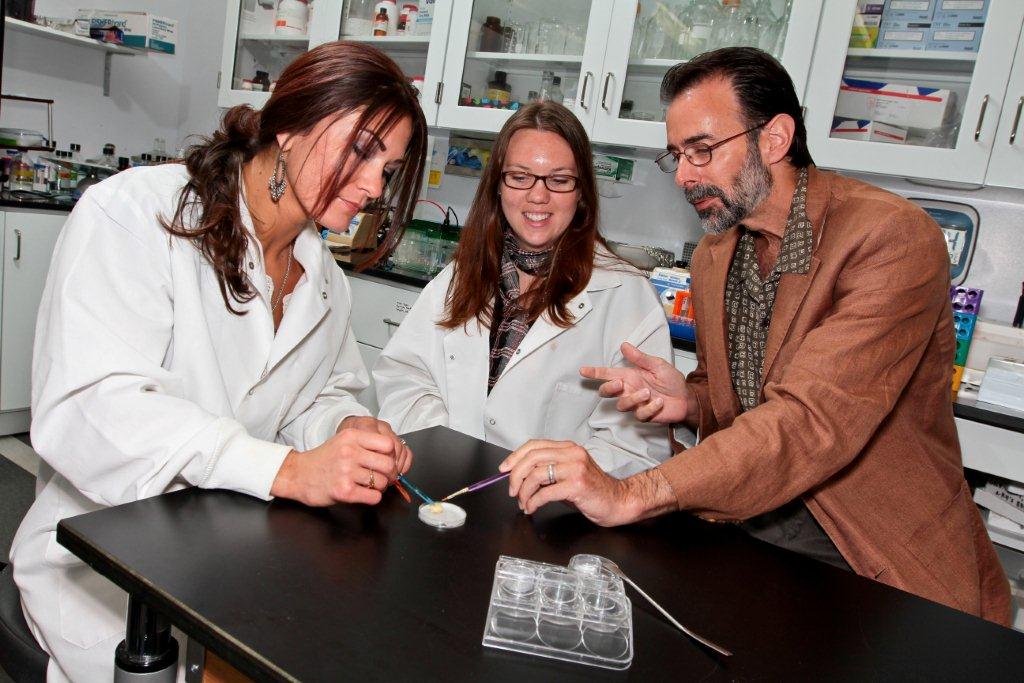
UNC Pembroke Expands Research Reach
 |
|
| Joanna Cooper, Rebecca Howell work with UNCP Prof. Ben Bahr, Ph.D. Photo courtesy of UNCP. |
Researchers at the University of North Carolina at Pembroke are exploring ways to stop Alzheimer's and other nasty genetic diseases by coaxing “cellular garbage trucks” in the body to carry away toxic trash uncollected when other such “trucks” break down.
Grants from the North Carolina Biotechnology Center helped bring the endeavor to the campus – initially with funding to help molecular biologist Ben Bahr, Ph.D., move his lab to Pembroke from the University of Connecticut.
Bahr, now chairman and professor of biochemistry and molecular biology, is bringing international recognition to the Pembroke campus with his research. And he’s also bringing top-notch North Carolina undergrads under his wing, again with grant help from NCBiotech.
Young scientists can tap NCBiotech’s Undergraduate Biotechnology Research Fellowships – $5,000 awards to support research experiences for science and engineering majors. These awards each summer give university students an opportunity to try bench science, and their university or company mentors get a new perspective.
UNCP’s Joanna Cooper earned one of the grants in 2010 and Rebecca Howell, who left the real estate industry to become a UNCP student, received one in 2011. Both have helped in Bahr’s focus on lysosomes – those “trucks” that don’t run properly in people lacking a key enzyme, allowing toxic plaques to accumulate.
Bahr is one of the 50-plus world-class faculty the Center has helped recruit to North Carolina universities. It’s a major reason UNCP is making inroads in medical research. And NCBiotech is connecting the dots to help it happen.
For more, read this story published recently by the Fayetteville Observer.
